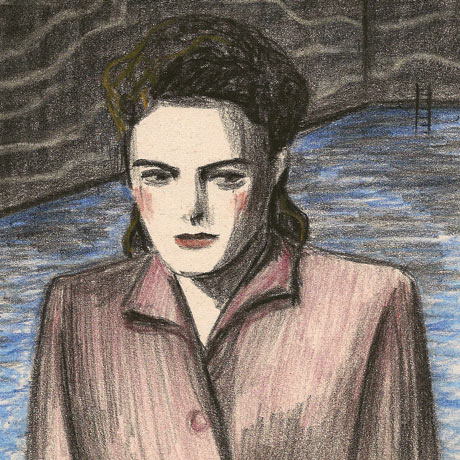
In 1920, in a jaw-droppingly unethical experiment that's mainly remembered today as an example of how not to conduct a psychological study, John B Watson set out to prove a point about fear – using, as his guinea pig, an eight-month-old boy in a Baltimore hospital. Little Albert, as he became known, was taught to associate a white rat with a terrifying sound – a steel bar was struck with a hammer behind his back whenever he reached towards the animal – until, the story goes, he was terrified of anything white and furry: dogs, a coat, Watson in a Santa Claus costume. (Watson, apparently, intended to reverse the effect, but Albert was removed from the hospital before he could do so.) It would be entertaining to propose something similar to a university ethics committee today: they'd spring from their seats in horror, like Little Albert seeing a sheepskin rug.
In fact, most of the details of Little Albert's "conditioning" have since been thrown into doubt. But something not too dissimilar afflicts many of us. When an experience gets associated with acute bad feelings, especially in childhood – being around dogs, say, or swimming pools, or moving house or money troubles – that category of thing can become fearsome for ever. But there's an additional twist I hadn't considered until I encountered it recently on the rationality blog lesswrong.com, where it's termed an "ugh field": what if one effect of finding some area of life particularly stress-inducing is that we get conditioned into not even thinking about it at all?
"A problem with the human mind is it's a horrific kludge that will fail when you most need it not to," writes one Less Wrong blogger, who argues that ugh fields are a case in point: "If a person receives constant negative conditioning via unhappy thoughts whenever their mind goes into a certain zone of thought, they will develop a psychological flinch mechanism around the thought."
Suppose, in early adulthood, you have a few bad experiences with missed credit card bills and penalty fees. A rational person might resolve to think more about bills in future, to avoid repeat problems. But a fear-conditioned mind, erecting an ugh field around the subject, might become more forgetful with money, to avoid experiencing the emotions associated with the thought, thus making matters worse. (Another example: many people fail to take medicines they've been prescribed for life-threatening conditions. Could it be because they'd rather avoid thinking about having a life-threatening condition – even if that puts their lives at risk?) Worse, if the ugh field hypothesis is correct, the "flinch" occurs, by definition, before the thought enters your conscious mind. So even someone sincerely dedicated to confronting (say) their issues with money won't have the opportunity: the ugh field will have screened it out pre-emptively.
This is all highly dispiriting, except in so far as it highlights a broader truth about fear: we're not really afraid of events, but of experiencing the emotions associated with them. ("I'm only ever afraid of a feeling, never a task," is how the blogger David Cain applies this to procrastination at raptitude.com – see is.gd/t3cRPZ.) Which is actually liberating, since the prospect of experiencing an unpleasant emotion is almost always more palatable than the prospect of Something Really Bad happening. If you can tolerate the feeling of "ugh", there's not much you can't tolerate in life.
oliver.burkeman@theguardian.com

